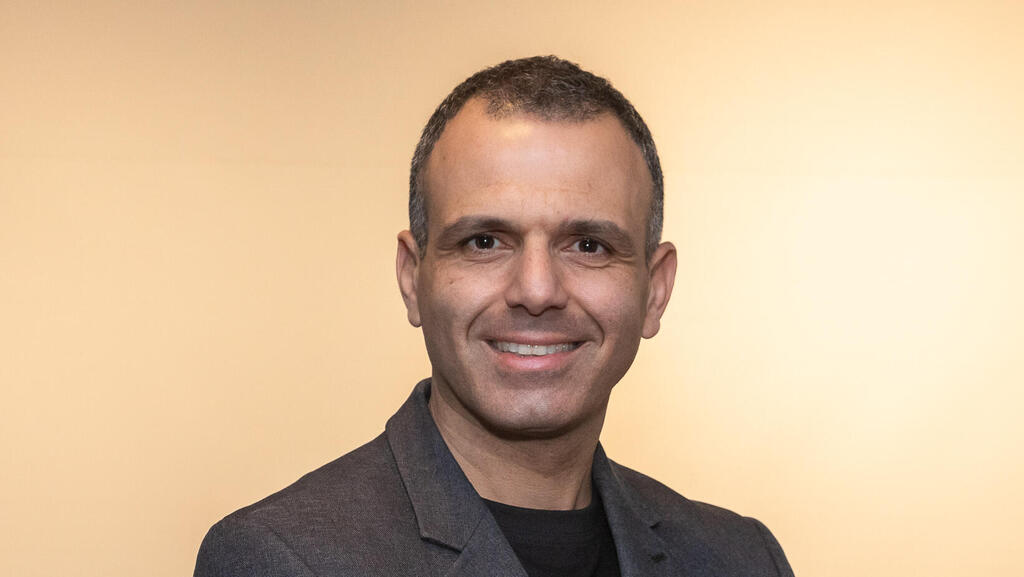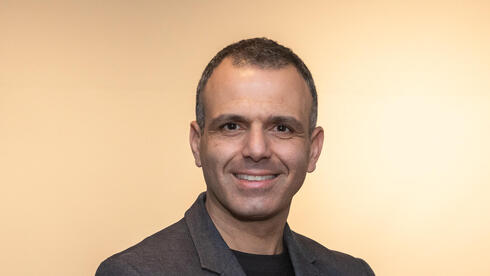
VC AI Survey
Here’s who TPY Capital is backing in the AI era
Managing Partner Guy Yamen joined CTech for its VC AI Survey to discuss investment trends in artificial intelligence opportunities.
“We anticipate a growing wave of solo entrepreneurs or very lean teams building and exiting without raising significant funding,” said Guy Yamen, Managing Partner at TPY Capital. “It will not be unicorn, but could be a significant amount for the founders.”
Yaman joined CTech for its VC AI Survey to discuss investment trends in artificial intelligence opportunities. Notably, he discussed the things that the firm is looking for as it examines investment opportunities in tech and in people.
“We are especially looking to back founders with deep domain expertise who are applying AI to non-obvious, high-friction problems that aren’t easily addressed by off-the-shelf solutions,” he continued. “These founders bring niche expertise and move fast, often building differentiated products with minimal capital.”
You can read more below.
Fund ID
Name and Title: Guy Yamen, Managing Partner
Fund Name: TPY Capital
Founding Team: Dekel Persi; Guy Yamen
Founding Year: 2012
Investment Stage: Early stage
Investment Sectors: AI, Fintech, Data infrastructure, quantum computing, enterprise digitization
On a scale of 1 to 10, how has AI impacted your fund’s operations over the past year - specifically in terms of the day-to-day work of the fund's partners and team members?
9 - AI is embedded into the core of how our fund's operations. Over the past year, it has reshaped the day-to-day work of every partner and team member, helping us stay lean while expanding our reach and sharpening our decision-making.
We have quite a few custom agents running in production. Sourcing scaled significantly, with automated scouts surfacing 3-4× more qualified leads each week-growing the top of the funnel without increasing headcount. Our first-pass filtering and initial due diligence are faster, and the retrieval of information is easier.
Have you already had any significant exits from AI companies? If so, what were the key characteristics of those companies?
Not yet.
Is identifying promising AI startups different from evaluating companies in your more traditional investment domains? If so, how does that difference manifest?
The biggest shift is that the classic "tech moat" is often missing or short-lived. Models and infrastructure are increasingly commoditized, so we rarely back a company just because it has a novel algorithm. Instead, we focus on other defensibility layers like: Data advantage - Startups with unique, proprietary, or deeply integrated data pipelines have a stronger position or domain expertise - deep understanding of a niche market often leads to better product-market fit and stickier adoption.
What specific financial performance indicators (KPIs) do you examine when assessing a potential AI company? Are there any AI-specific metrics you consider particularly important?
At the fund level, we ultimately measure success through IRR and DPI. In that context, AI companies (especially those in the application layer) present a unique profile.
We believe application-layer AI startups will drive faster exits at smaller valuations, with the commensurate impact on RR and DPI.
At the startup level, we pay close attention to margin, which in AI can vary widely. On one hand, the cost of using foundational models can be high. On the other hand, operations can be far leaner than traditional SaaS. We look for businesses that can reach or maintain 80%+ gross margins, either through optimization (e.g., model distillation, caching, or switching to open weights) or by delivering high-value outputs that justify pricing power.
Related articles:
How do you approach the valuation of early-stage AI startups, which often lack significant revenues but possess strong technological potential?
We approach valuations of early-stage AI startups much like we do in other domains. While these companies may have strong technological potential, we don’t typically attribute outsized value to the tech itself, as discussed above.
We don’t believe most AI startups have a durable tech moat as models are increasingly commoditized, and the pace of innovation makes it hard to defend on tech alone. As a result, our valuation approach doesn’t change dramatically for AI.
In parallel, what's clear is that for the super-high-flyer-founders, it's easy to raise a huge amount of capital even in Seed (see Mira Murati's Thinking Machine Lab raising $2b (!) at $10b valuation (!!) for Seed (!!!). Such a round is naturally out of scope for a fund of our size.
What financial risks do you associate with investing in AI companies, beyond the usual technological risks?
AI startups face financial risk from model liability and over-reliance on external providers. Generated outputs can lead to IP exposure, misinformation, or hallucinations that carry legal and reputational costs, especially in regulated industries. What's important to note is that no one has a clear idea of where regulation is heading, so an early-stage startup may find itself having to deal with regulation (anyone said EU?), which could become prohibitive.
Financially, dependence on a small set of models or cloud providers creates fragility-pricing changes, API restrictions, or downtime can directly impact margins, product stability, and customer trust.
Do you focus on particular subdomains within AI?
We don’t limit ourselves to specific subdomains within AI. We actively look across the full spectrum.
How do you view AI’s impact on traditional industries? Are there specific AI technologies you believe will be especially transformative in certain sectors?
We see AI as a major force reshaping traditional industries, often enabling startups to emerge in spaces that were previously dominated by legacy players. Sectors like manufacturing, professional services, and banking are especially ripe for disruption.
What specific AI trends in Israel do you see as having strong exit potential in the next five years? Are there niches where you believe Israeli startups particularly excel?
We anticipate a growing wave of solo entrepreneurs or very lean teams building and exiting without raising significant funding. It will not be unicorn but could be a significant amount for the founders (and to be clear - we projected this well before Base44, if you're listening to our podcast, AIdeation).
Also, we believe deep tech startups in the AI domain are especially compelling, as they offer a path to building a truly sustainable moat. These companies have the potential to drive significant exits, which aligns directly with what we’re looking for as a VC.
Are there gaps or missing segments in the Israeli AI landscape that you’ve identified? What types of AI founders are you especially looking to back right now in Israel?
We are especially looking to back founders with deep domain expertise who are applying AI to non-obvious, high-friction problems that aren’t easily addressed by off-the-shelf solutions. These founders bring niche expertise and move fast, often building differentiated products with minimal capital.
